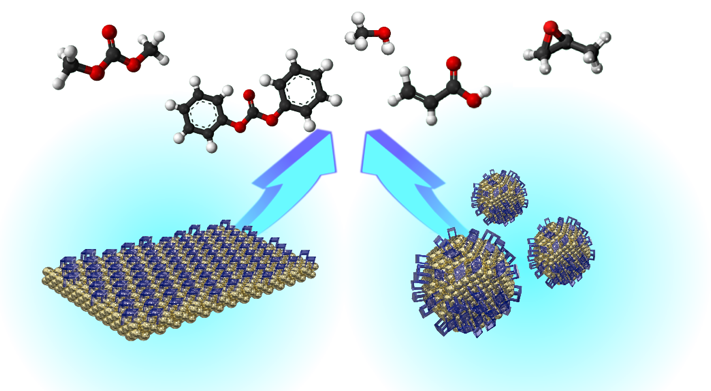Villum Young Investigator Grant for Jiwoong Lee and Maria Escudero Escribano
María Escudero Escribano, Assistant Professor at the Department of Chemistry at the University of Copenhagen, has received DKK 10 million for her research in geometrically tuned surfaces at the atomic level for electrosynthesis reactions. Understanding and controlling selectivity of these reactions will result in significant breakthroughs in the field of electrocatalysis.

There is an urgent need to develop a sustainable economy based on clean energy and green chemical synthesis processes. Electrocatalysis may play an essential role in the transition towards a sustainable future. The main goal of AtomSyn is to understand and tune the selectivity of new “dream” electrochemical reactions by atomic-scale control of the geometric structure of the catalyst surface. This approach will allow us to convert greenhouse gases into fuels as well as synthesise valuable chemicals.
María Escudero Escribano joined the Department of Chemistry at the University of Copenhagen (UCPH) as a Tenure-track Assistant Professor in March 2017. She leads the experimental NanoElectrocatalysis group at the Nano-Science Centre and the Department of Chemistry at UCPH. Her group investigates electrochemical interfaces for energy conversion reactions and electrocatalytic synthesis of fuels and chemicals. María has received numerous awards in recognition of her ground-breaking research in electrochemical energy conversion and chemistry at a large, including the European Young Chemist Award 2016 (Gold Medal) and the Electrochemical Society (ECS) Energy Technology Division Young Investigator Award 2018.
New “dream” electrochemical reactions
The Villum project AtomSym aims to investigate new approaches for the conversion of greenhouse gases such us methane into fuels like methanol, as well as synthesise high-value building blocks for the production of polymers. The main challenge of these electrochemical reactions is to achieve selectivity towards the desired products. In order to make these reactions selective, the NanoElectrocatalysis group will control the geometric arrangements of the catalysts at the atomic level, both on extended surfaces and nanoclusters. The group will combine electrochemical methods with in situ spectroscopy, mass spectrometry, gas chromatography and electrochemical scanning tunnelling microscopy.
This project will run over the next five years, and will allow María’s research group to conduct ground-breaking science in NanoElectrocatalysis. The grant will fund three PhD students, two postdoctoral researchers and new experimental equipment. While the research will primarily be carried out at the Department of Chemistry at UCPH, it will also involve research stays at Stanford University, Massachusetts Institute of Technology and the University of California Berkeley. The research will result in new breakthroughs in the field of electrocatalysis, enabling atomic ensemble control and interface engineering for new key sustainable reactions, and offering green alternatives to the chemical industry.
Jiwoong Lee, Assistant Professor at the Department of Chemistry at the University of Copenhagen, has received DKK 7 million for his research in water.
Water is the most important molecule on Earth. All forms of life consist of water, which also provides the essential environment for proliferation of life. However, recent global climate changes are seemingly accelerating the unpredictability of secure water supply sources. This project will provide a new Catalytic Desalination Process by Diamine and Carbon Dioxide. The grant funds two PhD students and one postdoc.
Related News
Contact
Contact: Assistant Professor María Escudero-Escribano
e-mail: maria.escudero@chem.ku.dk
Contact: Assistand Professor Jioong Lee
e-mail: jiwoong.lee@chem.ku.dk
